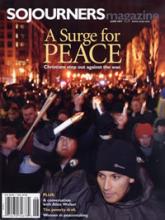Ending Poverty in America is an insightful and readable book that contains concise chapters by experts who describe the complex and intertwined aspects of poverty in America—including such neglected aspects as financial services, rural poverty, and regional inequity. The book also provides concrete descriptions of programs and initiatives that are working and suggests practical and incremental policy changes that could be enacted to make a difference. I find the book strangely hopeful despite the times.
Nowadays politicians hardly mention poverty; government policies (and inaction) have increased the number of poor people, while cumulative tax cuts for the wealthy dry up government resources to reduce poverty. Despite this, John Edwards, the book's editor, calls for a national goal to eliminate poverty in America in 30 years. A bold call. Jeffrey Sachs laid out a similar challenge in his book The End of Poverty, and it is echoed in the ONE Campaign and in recent campaigns from the religious community, including Sojourners/Call to Renewal's Covenant for a New America, the Christian Churches Together statement on poverty, the Catholic Charities Campaign to Reduce Poverty in America, and others. Although this book helps us move from dismay to concrete, attainable action, the impact and role of the religious community is strangely missing.
Early chapters define the "what" and "who" of poverty. Edwards traveled around the country for two years, listening to poor people. He came to our place, Bethel New Life in Chicago, and listened to people with low-wage jobs struggling to make it; people with credit problems; people recently out of prison and marked for the bottom rung of society; women juggling work, school, and households; the formerly homeless; and many others.
Read the Full Article
